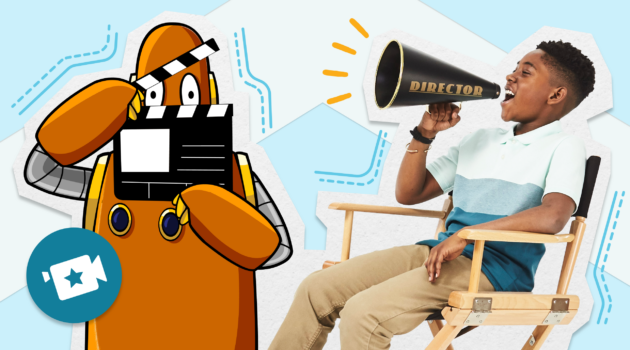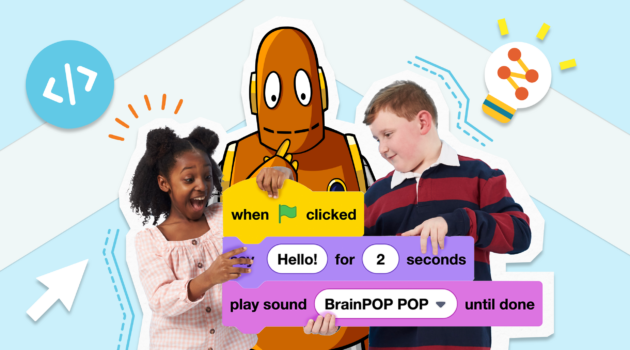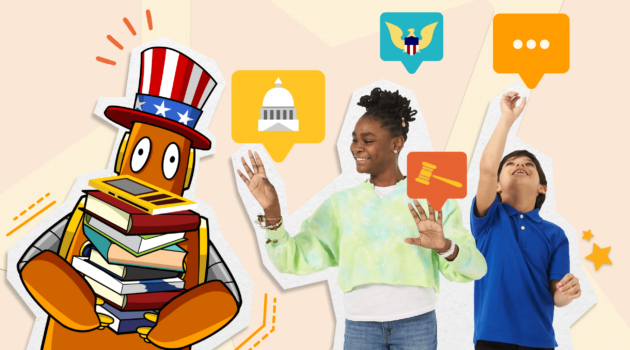Teaching Strategies
How to Boost Civics Learning with Educational Games
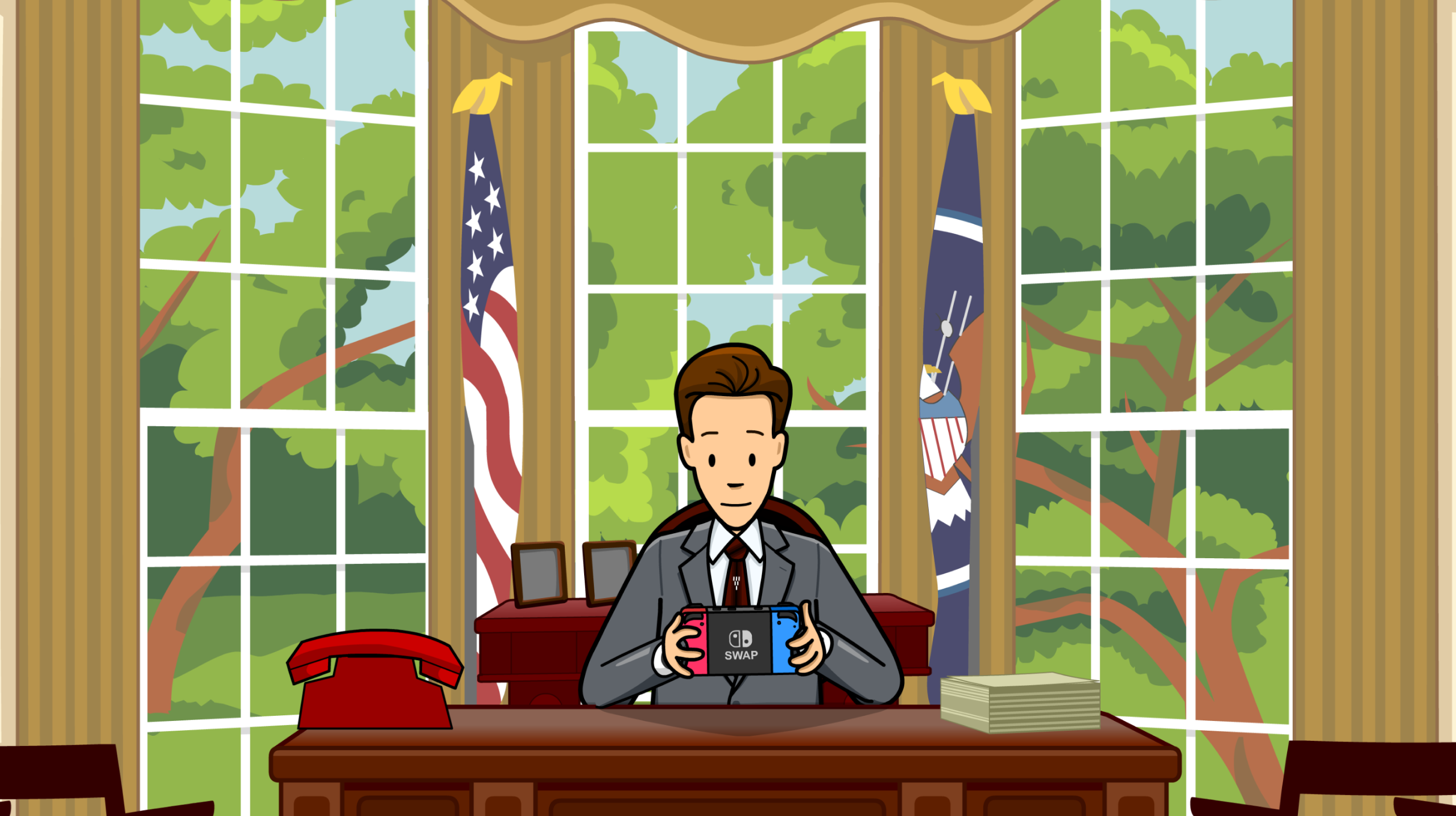
When people have a better understanding of how their government works, they’re more likely to be civically engaged citizens throughout their lives. But how do you engage kids in civics when they’re not even old enough to vote? One answer: games!
There are many benefits to incorporating learning games in your lessons. Games encourage active learning and engagement, allowing students to practice critical thinking skills, problem solve through various scenarios and fun challenges, and explore different strategies for success. And the best part is, kids love games!
BrainPOP partnered with iCivics, a nonprofit civics learning game developer, to teach kids how government and political processes work. iCivics is also the cosponsor of Civic Learning Week, a movement to bring students, educators, policymakers, and leaders together for civic education across the nation.
Every iCivics game ties into related BrainPOP topics—making it easier to build background knowledge while boosting an active learning environment. Get to know some of these civics learning games, and be prepared for a lively classroom!
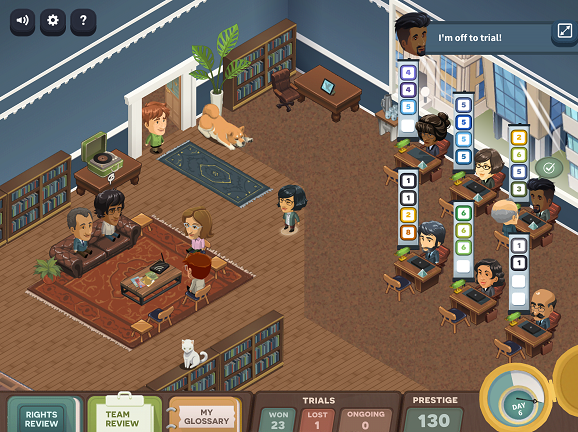
Do I Have a Right?
In Do I Have a Right?, students run their very own law firm specializing in constitutional law. As they play, students must identify whether potential clients “have a right” as they bring various complaints to the firm’s office. Students will learn to match these complaints to the related constitutional amendment, plan strategically and sequence tasks, and work on informational text reading skills to build a case—reinforcing knowledge along the way.
Related BrainPOP Topics: Bill of Rights | U.S. Constitution | Women’s Suffrage
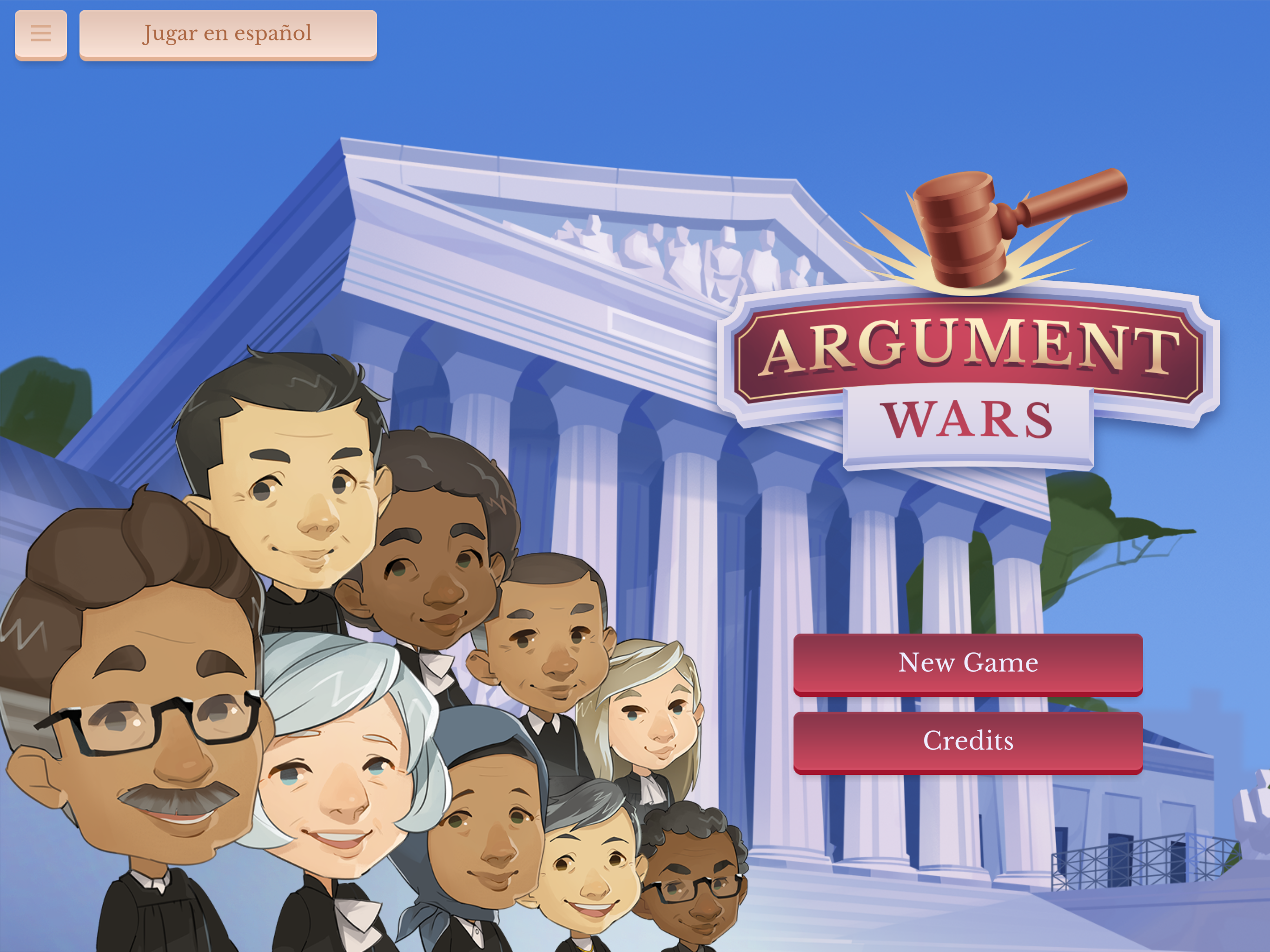
Argument Wars
In Argument Wars, students put their persuasive abilities to the test by arguing a real Supreme Court case! Students analyze the arguments and outcomes of landmark cases like Brown v. Board of Education and Miranda v. Arizona. They assess whether reasoning is sound and support is relevant, and learn the significance of the U.S. Constitution and Supreme Court precedent in deciding cases.
Related BrainPOP Topics: Debate | Court System | Brown v. Board of Education of Topeka

Win the White House
Win the White House challenges students to manage their own presidential campaign by debating timely issues, strategically raising funds, polling voters, launching media campaigns, and making personal appearances. Your “candidates” gain a better understanding of the electoral process, recognize the influence of the media in forming public opinion, and analyze how all parts of a presidential campaign come together.
Related BrainPOP Topics: Presidential Power | Voting | Primaries and Caucuses
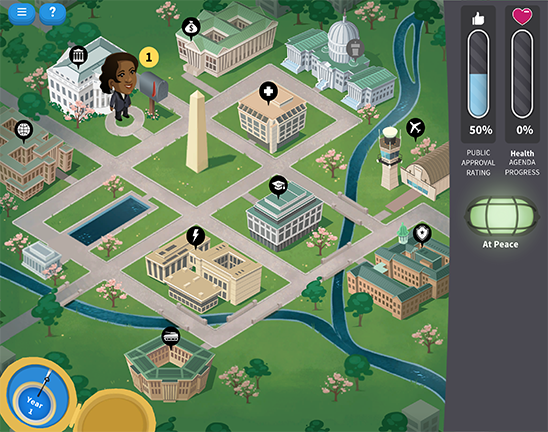
Executive Command
In Executive Command, students become commander in chief. They face daily challenges of running a government and keeping the country healthy and safe during a four-year term. Students decide on a signature issue during their first State of the Union address, sign bills into law, delegate new laws to the appropriate federal agencies, handle international diplomacy, and command the military during times of war. Watch out, though… being president can be stressful at times!
Related BrainPOP Topics: Branches of Government | United Nations | Presidential Power
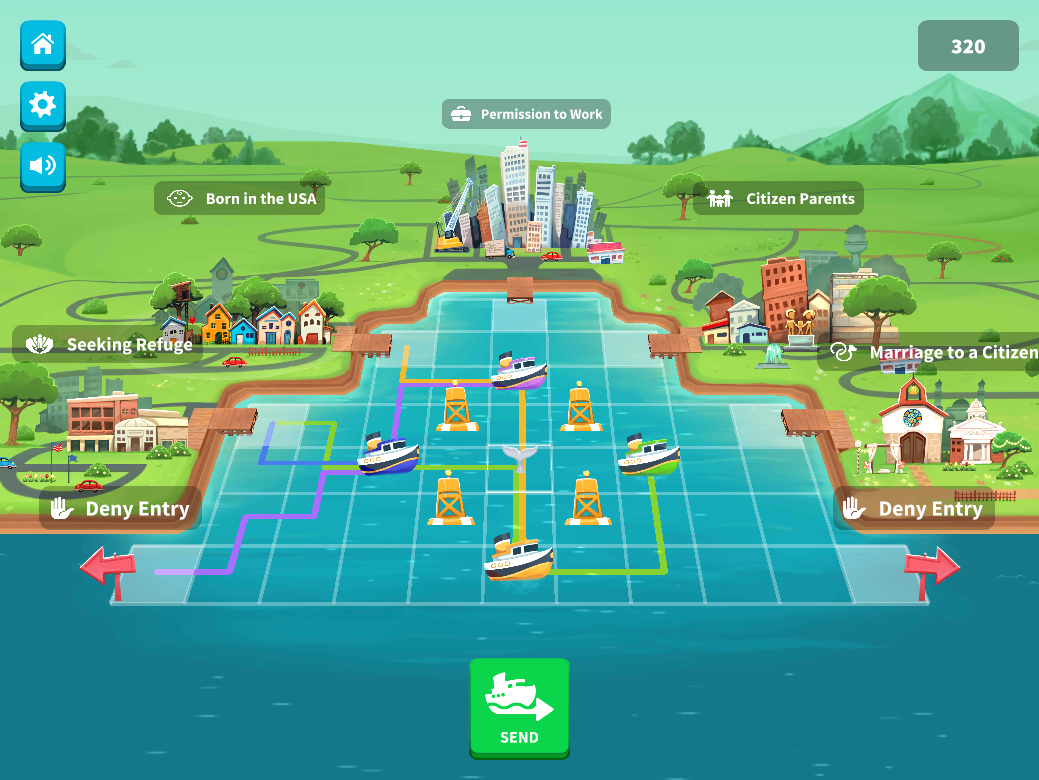
Immigration Nation
Immigration Nation teaches students about the paths to American naturalization and citizenship. Students are presented with people arriving in America and must decide whether each person is eligible to live in the United States and if so, which immigration rule applies. In the process, students learn the naturalization requirements and eventual path to citizenship for people in various circumstances.
Related BrainPOP Topics: U.S. Constitution | Immigration | Democracy
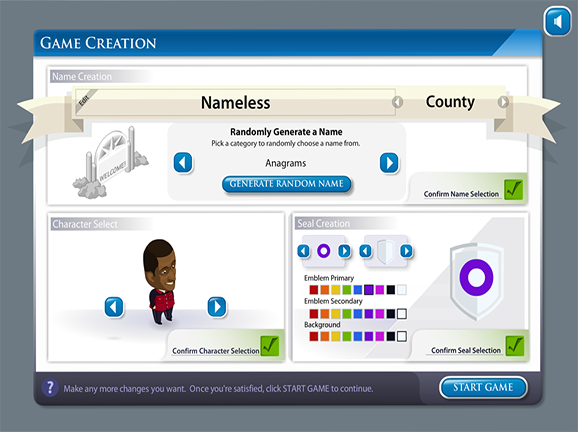
Counties Work
In Counties Work, students learn about local government by playing the role of a county official responding to citizen requests—all while keeping them happy and managing county resources responsibly. Are citizens making sensible requests? Which local government department has the solution? Do taxes need to be raised or lowered? How will citizens react? Students will walk away with a better understanding of the vital role local governments play.
Related BrainPOP Topics: Taxes | Court System | Census
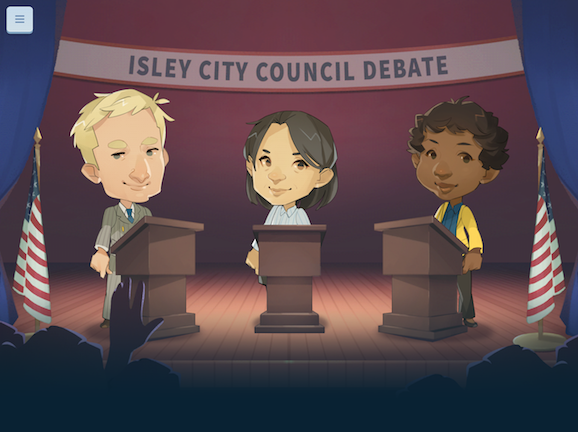
Cast Your Vote
They may not be old enough to vote just yet, but will your students be ready for Election Day when they reach voting age? In Cast Your Vote, players discover what it takes to become an informed voter—from knowing where they stand on important issues to uncovering what they need to know about candidates, such as their qualifications, experience, voting record, endorsements, personal qualities, and messaging.
Related BrainPOP Topics: Voting | Primaries and Caucuses | Political Parties
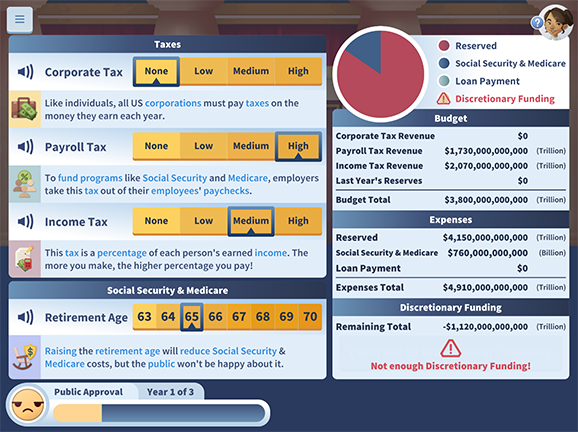
People’s Pie
People’s Pie is a balancing act: Students must fund important programs without setting tax rates too high or borrowing too much money. To succeed, students must keep their residents happy while avoiding a burdensome national debt. They’ll learn to explain how federal, state, and local taxes support the economy, and describe various types of projects and services that are funded by taxes.
Related BrainPOP Topics: Political Beliefs | Budgets | Recession
Building Background on Civics Learning
When students have a better understanding of how our government works and the background knowledge needed to make connections and think more critically, they’ll be better prepared to participate when they leave the classroom. For more tips on how to include civics learning, check out why teaching about civics matters—no matter what subject you teach.
Jordan Bremus-Wyles is the Sr. Manager, Content & Social Media Strategy at BrainPOP, with a Bachelor’s in English and Journalism. She is a youth advocate and mom of two.


